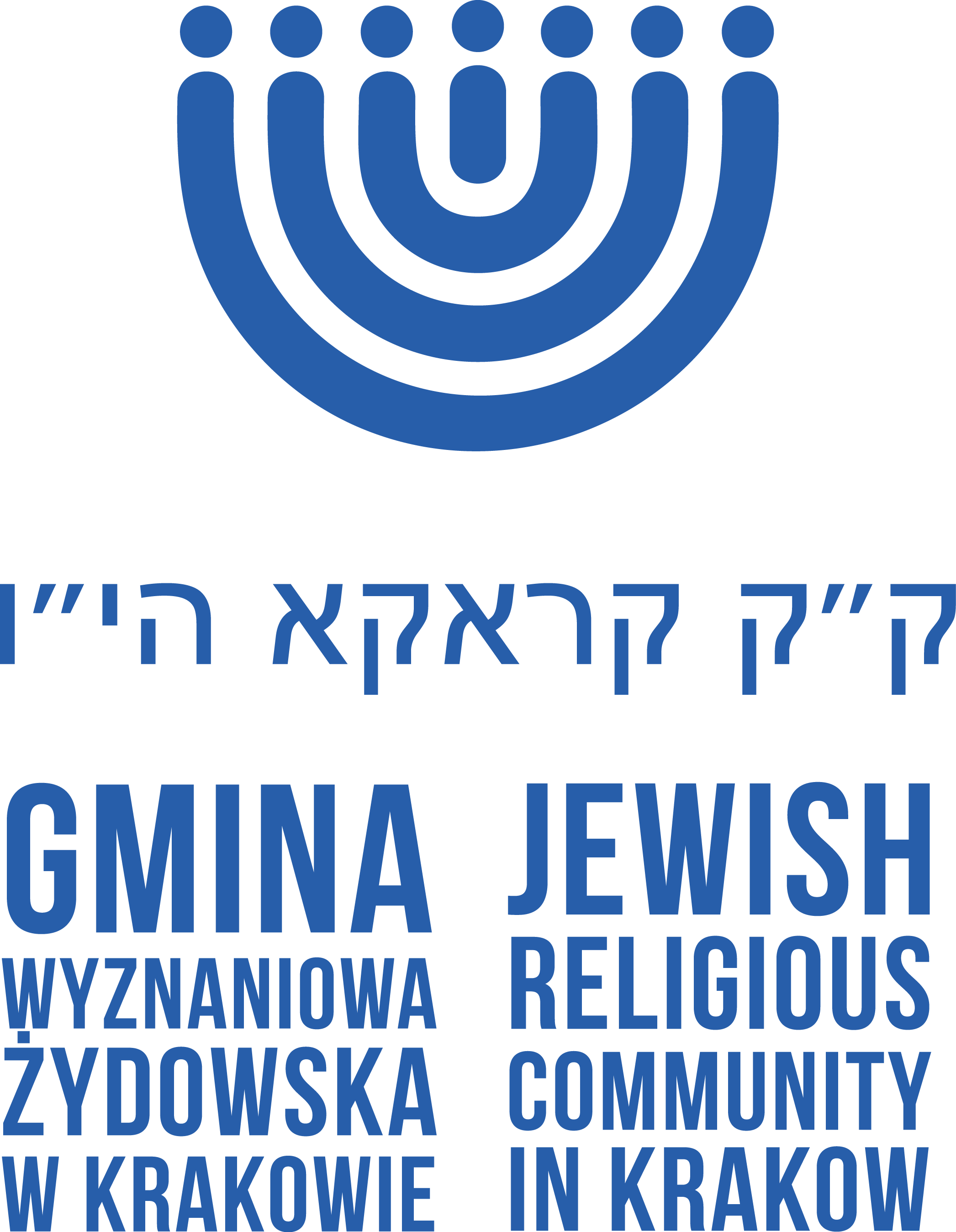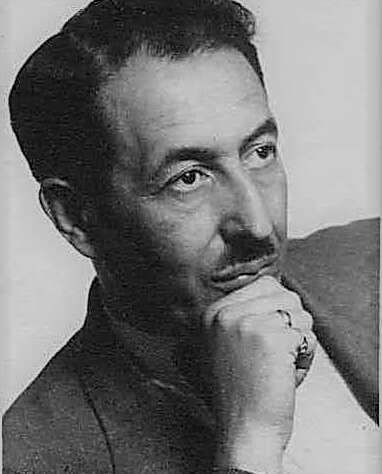Maria Orwid (Maria Pfeffer ), a pioneer in family psychiatry and family councellig was born on 23rd July 1930 in Przemyśl. A student of a well-known psychiatrist Antoni Kępiński, was both the founder and the manager of the first Psychiatry Clinic for Children and Teenagers in Poland. Maria Orwid came from an assimilated Jewish family. Her parents gave her lots of attention and cared about her intellectual development. After the war broke out, together with her family, Maria Orwid was moved by force to a ghetto which they later managed to escape from. Until the end of the war Maria Orwid lived in hiding in Lviv using her fake ”Aryan papers”. After the liberation, she moved to Krakow where she took the maturity exam and started her…
Following the idea to ”increase fitness in the Jews”, Makkabi Krakow, a Jewish sports club was set up on 21st July 1909. In 1932 there were seventeen sections and 1,018 members in the club. The club emblem included the star of David surrounded by a circle with the letter M in the middle while the club colours were white and blue. Any Jewish boy or girl over 18 was welcome. The people behind the idea to set up the club were: Henryk Leser, Ignacy Mahler, Adolf Weissmann, Bernard Lermer, Józef Leserkiewicz, Franiciszek Scheuer, Józef Weiss, Józef Schönberg, Marian Korngold. The Makkabi Krakow stadium was located between Koletek and Dietla street. After WWII it was taken over by the Nadwiślan Krakow club. Sport in the Jewish community grew strong and…
Born on 20th July 1898 in Krakow, Leopold Infeld, son of Salomon and Ernestyna, née Kahane, was a theoretical physicist, an author of works about the Theory of General Relativity (he collaborated with A. Einstein), the field theory and electrodynamics, a member of the Polish Science Academy and the World Peace Council. Signatory of the Russell-Einstein manifesto; signatory of Letter no.34. Leopold Infeld was a student of a Kazimerz Wielki Department School and the Adacemy of Trade. After the maturity exam (1916), he enrolled the Jagiellonian University’s Faculty of Physics. In 1920 Infeld met Einstein in Berlin where he lived for 8 months. After his return to Krakow he obtained his PhD title (1921). In 1930 Infeld became an assistant and an associate professor at the John Casimir…
Filip Pinkus Eisenberg , a bacteriologist ; son of Abraham and Estera, née Spir , was born on 19th July (or August) 1876 in Krakow.A Krakow Gymnasium no.3 graduate, Eisenberg finished Medicine at the Jagiellonian University in 1899, followed by studies in Vienna. Between 1901-1902 Eisenberg worked as an assistant under Odon Bujwid’s supervision at the Department of Hygiene at the Jagiellonian University. Moreover, he worked as a researcher at Paris Pasteur’s Institute under the supervision of Ilia Miecznikow as well as at the Department of Hygiene at the University of Wroclaw under the guidance of Richard Pfeiffer. During the Polish-Bolshevik war he managed the Military Isolation Hospital in Warsaw (1919-1920). Eisenberg’s other position included a Director of the National Bacteriologist Unit in Krakow (1933-1939). Eisenberg joined…
Born on 15th July 1882 in Krakow, Szymon Feldblum, son of Majer and Amalia, née Weber, was a lawyer, a solicitor for the Jewish Religious Community in Krakow, a Vice-President of the Association of Residential Protection and one of the founders of B’nei B’rith – „Solidarność” – the Jewish Humanitarian Association in Krakow; a Zionist. Feldblum graduated from St.Jack’s Gymnasium in Krakow (1900) followed by the Faculty of Law and Administration at the Jagiellonian University (1906). After his gratuation from the University, Feldblum got a position at Krakow’s legendary lawyer’s, dr Ludwik Szalay (1857-1934) at the Goetz Palace located at św.Jana 3. When dr Szalay decided to retire, he left his Legal Office to Feldblum, knowing that he was leaving the clients, the company’s tradition and reputation…
The first issue of Nowy Dziennik, one of the most widely-read Jewish newspapers, first came out on 9th July 1918 9 with the initiative of Ozjasz Thon. During the war the paper was printed in Przywóz ( near Morawa Ostrawska) and its offices were located at Stradom 13. Later on, the headquarters was moved to Orzeszkowa street in Krakow.Initially, the newspaper had some hard time in free Poland as it published news about ani-Jewish incidents. Several attempts were made to seize the edition of Nowy Dziennik as well as to burn it at the stake. On 9th January 1919, the Post Office authorities working together with the army , withdrew the newspaper’s postal licence for distrubion for Galicia and Cieszyn Silesia which meant the newspaper issue was…
On 7th July 2022, the Jewish Religious Community in Krakow represented by Michał Zajda and Michał Zieliński took part in celebrations of the 80th anniversary remembering the Jewish deportation from the Rzeszow ghetto. The March of Remembrance and the unveiling of a plaque at the Rzeszow Staroniwa station was organised by Stowarzyszenie Rajsze, Fundacja Rzeszowska and Stowarzyszenie Działamy Rzeszów. The honorary patronage over the event was taken by Konrad Fiołek, Mayor of Rzeszów, who also participated in the celebrations. Other attendees included: Vice-provincial governor of Podkarpacie Radosław Wiatr, a representative of the Podkarpacie voivodeship marshal Waldemar Szumny, the University of Agriculture professor, PhD.Wacław Wierzbienic as well as several local activists. We would like to thank the organisers and all participants of the celebrations for commemorating the Rzeszow Jews. Photo…
On 4th July 2022, the Jewish Religious Community delegation led by Tadeusz Jakubowicz took part in celebrations of the anniversary remembering victims of the Kielce Pogrom from 4th July 1946. The following people were in attendance: the Ambassador of Israel in Poland Yacov Livne, Deputy Director of the Culture and Nartional Heritage Bureau of the Chancellery of the President of the Republic of Poland Dawid Drabik, Mayor of Kielce Bogdan Wenta, Chief Rabbi of Poland Michael Schudrich, Chairman of the Jewish Religious Community in Katowice Włodzimierz Katz, Chairman of the Association of Kielce Jews in Israel Yaacov Kotlicki, Director of the Auschwitz-Birkenau State Museum Dr Piotr Cywiński, Chairman of the Roma Association in Poland Roman Kwiatkowski, representatives of the Social and Cultural Association of Jews in Poland as well clergymen representing various faiths who…
Born on 3rd July 1883 in Krakow, Sara Schenirer, daughter of Becalel and Roza, née Lach, was an educational and social activist and a founder of the Bajs Jakow school. According to Sean Martin, Schenirer, who grew up in a religious sprit, dreamed about secular education, which, at that time, was unavailable for a Jewish female. Since she had no opportunity to expand her knowledge of secular subjects, she audited courses ran in Polish by Polish educational female activists. Inspired by Rabbi Flesch, whom she met in Vienna, Sara Schenirer founded a girls-only school in 1917, located in Krakow, św.Katarzyny 1. Over time, the school had expanded. Despite the school’s profile being in juxtaposition with the role of a woman in traditional Jewish families, it had lots of supporters…










